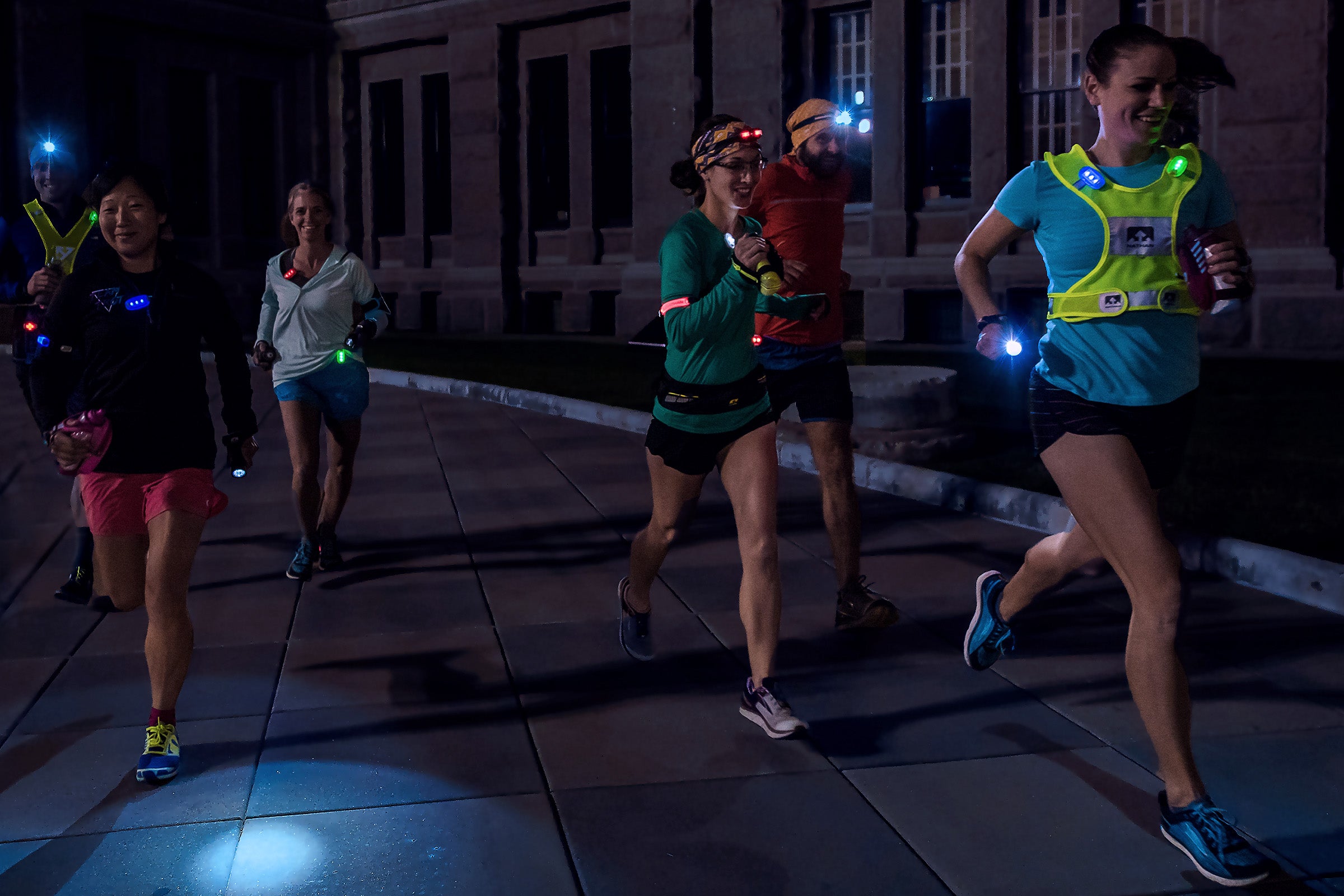While it may not be the easiest thing to get up and go outside for a nighttime run, research shows that running at night can have a significant and positive impact on your health. So rather than spending every night hoping you’ll wake up the next day a morning person - it’s time to ditch the morning run desires and embrace night as the time to run.
Here are our top five benefits for running at night:
1. Relieve Stress
It’s arguably one of the best parts of running. That hit of stress-relieving hormones after a full day of, well, running around, can help you decompress from the day and boost your mood when you need it most. If you want to keep the stress relief train going, spend some time on your run planning the next morning. Not only will you feel like you got an extra start on the day, but you’ll also go to sleep having processed your to-do list.
2. Better Sleep
Nighttime running can significantly improve your sleep quality. A study in 2018 showed that exercising at night can help you fall asleep easier and stay asleep longer. And if your circadian rhythm is off, research shows that running at night can help re-align it, leaving you tired when it’s time for bed. The key is not to run too close to bedtime when your mid-run energy burst is still winding down. But if you do find yourself running too close to bedtime, a shower or bath post-run can help get your body in a calm and relaxed state.
3. Fewer Injuries
To prevent injuries, it’s best to schedule your run at the time of day when your core body temperature hits its peak. This is between 4 pm and 7 pm. Higher core temperature means joints are lubricated, muscles have more nutrition and oxygen, and blood flow increases. All these bodily changes leave you running faster, safer, and without increased effort. Research from London University showed that a group of marathon runners consistently ran at least a minute faster on a 10-km course at night than during the day. Plus, it doesn’t hurt that your body has been partially warmed up and fueled up after moving around all day.
4. Combine Exercise and Socializing
Nighttime running can double as a social activity. Running groups are great for those who are trying to spend time socializing, as well as get a workout in. Most running groups meet at night, which helps significantly with safety. By combining your exercise routine with your social routine, you’ll up your accountability and have a great time doing it. Find other night runners at a local running group on meetup.com or search your local area and ‘running club’ to join.
5. Cooler Temps
For places that have a harsh sun and high humidity during the day, that nighttime chill can be a savior. And even in places with more mild daytime temps, cooler night temps can help you stay comfortable during your run, as well as keep your metabolism going strong. A study at the University of Chicago showed that the metabolism adapts better to evening and nighttime runs, which means that your body will be releasing fewer stress hormones than in a taxing environment. This makes it so you have an easier time staying hydrated, fueled, and energized.
While there are huge benefits to running at night, it does come with its own quirks and dangers. The most important thing to remember is safety. To stay safe, follow the safety tips below:
- Always run in a well-lit, safe area. This one is going to be mostly common sense based, if there are sections of the road with uneven surfaces, dangerous environments, or high-speed traffic, skip it and opt for a road where you can get those stress-relieving benefits and relax on your run.
- There’s power in numbers. Run with a buddy or a group, if possible.
- Be seen. Get yourself some running gear designed to make you’re seen when running in the dark. Whether this is with reflective vests, reflective clothing, headlamps, or flashlights. Make sure that both traffic and other people know that you’re coming.
- Be heard. Make sure you have a way to be heard if necessary. This can mean getting a specific running accessory like the Nathan Siren Ripcord or checking out your phone’s alarm app options.
- Choose a podcast or audiobook over music if you must listen to something on your run. Headphones with a voice are less likely to block out surrounding sounds than music will. The best option is to run with nothing in your ears so you can be aware of your surroundings.
- Plan or be familiar with your route. Running at night is not the ideal time to get lost. While we fully embrace a good adventure, let’s save those for the day when you have a better concept of your surroundings.




Comments